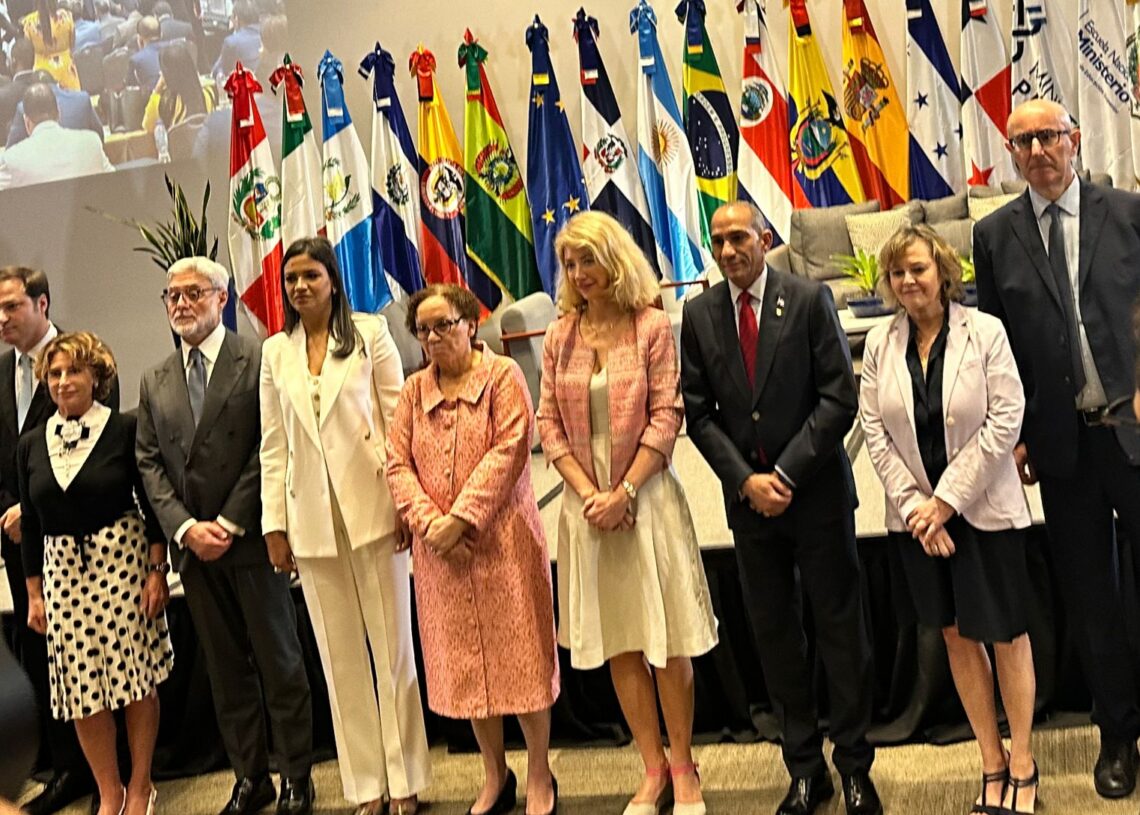SANTO DOMINGO (Dominican Republic) – “One of the reasons behind the idea that democracy cannot solve the region’s problems is that organized crime and its allies in the elites have deteriorated the institutions. This is something that we cannot continue to allow, since it entails other dangers: distrust in the system allows authoritarian populist discourses to gain political ground,” said Miriam German Brito, Attorney General of the Dominican Republic at the inauguration of the International Seminar “Follow the Money: New ways to fight drug trafficking and money laundering”, which takes its title from the inspiring words of the remembered Judge Giovanni Falcone.
Without borders
“No country can face this problem alone, because criminals have no borders,” said Giovanni Melillo, Italy’s National Anti-Mafia and Anti-Terrorism Prosecutor, in reference to one of the most repeated ideas of the seminar: the importance of strengthening and increasing judicial and police cooperation against drug trafficking and the need for a more inclusive and holistic approach to interdiction policies.
The Instituto de Educación Superior Escuela Nacional del Ministerio Público (IES-ENMP), together with the Cooperation Program between Latin America, the Caribbean and the European Union on Drugs (COPOLAD III), financed by the European Union, held the international seminar “Follow the Money: New Modalities in the Fight against Drug Trafficking and Money Laundering”. This approach and exchange of experiences was attended by prosecutors, public prosecutors and legal advisors on the subject.
The international event took place on March 28 and 29, 2023, with the participation of representatives from Italy, Peru, El Salvador, Ecuador, Brazil, Argentina, Colombia, Costa Rica, Honduras, Guatemala, Panama, Spain and the Dominican Republic as host.
Anti-Drug and Anti-Mafia Prosecutors
“We must reach those at the top,” said Spain’s Chief Anti-Drug Prosecutor (the first woman to assume such a post) in reference to the need to adjust and redirect the criminalization gaze in the fight against the illegal drug economy. “Currently, we are only managing to confiscate 1% of the financial assets that give drug traffickers the power to corrupt governance and the legal economy. There is a lot of room for improvement,” he said.
In addition to analyzing strategies for the prosecution of criminal finances and the creation of mechanisms for joint investigation and borderless patrimonial investigation, the seminar specified some proposals for its management.
Katja Afheldt, Ambassador of the European Union in the country, stated that “For decades, the countries of Latin America, the Caribbean and the European Union have built a solid bi-regional relationship in the field of drug policies. The EU-CELAC Coordination and Cooperation Mechanism on Drugs reflects this commitment to joint cooperation, in accordance with the principle of shared responsibility”. The recommendations of the Seminar will be delivered to the Mechanism to feed the bi-regional dialogue on money laundering, one of the priorities of that body in 2023.
Attached is the full document of recommendations, agreed within the framework of this international seminar.






